France - Chapter 1
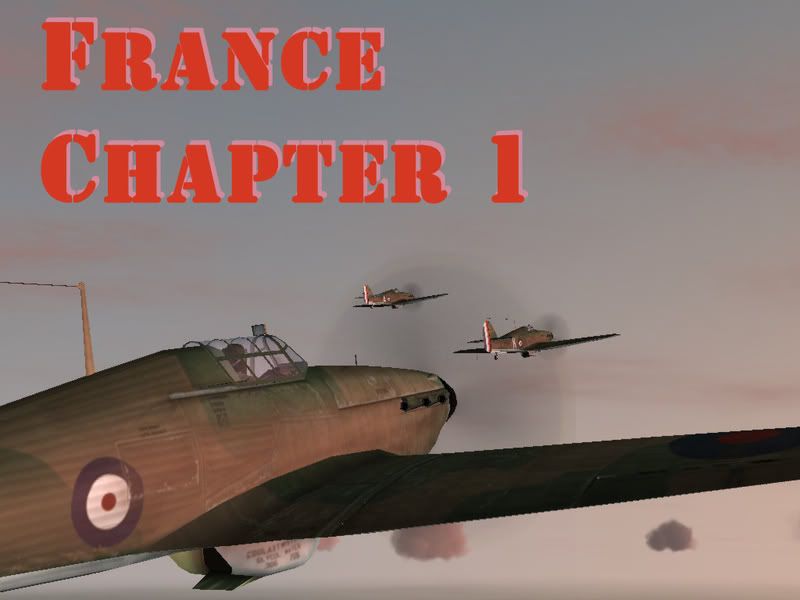
My start in world war 2 was not good. For several years i had been flying transport planes in the RAF. As Hitler annexed country after country, most of us realized that a peaceful solution, despite the claims otherwise by Chamberlain, would be very unlikely. When German troops crossed the polish border and we declared on Nazi Germany, i decided I would not sit on the sideline, piloting a lumbering transport. So applied for transfer to the fighter corps. In peacetime It would have taken a year or so, but with the impending war, everybody was willing to cut through the red tape and within weeks I got the orders to transfer to a squadron of Hurricane's in France.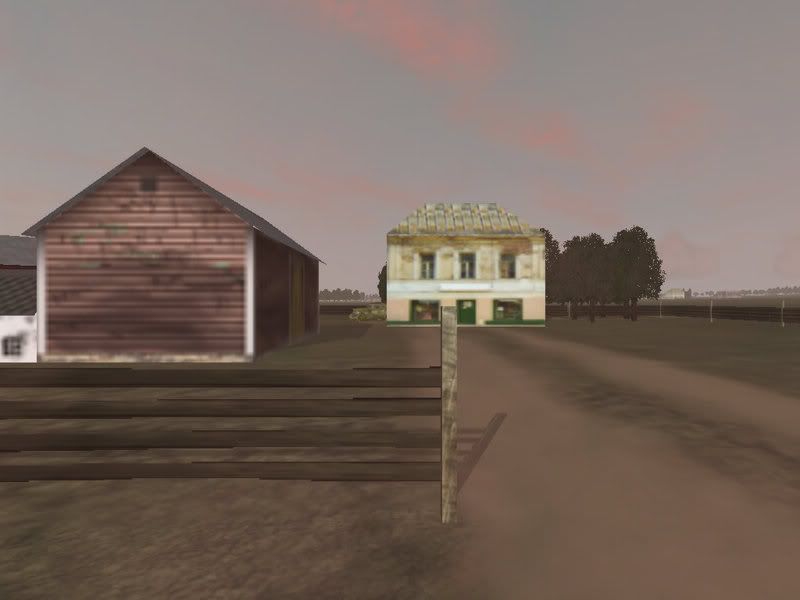
When i arrived at the provisional airfield in Bar-Le-Duc, I was greeted by the local army commander, which was not a good sign. As it turned out the squadron commander had crashed his aircraft the day before my arrival. Now the squadron was without commander. Most of the pilots came straight out of flight school so with my 28 years I was the most senior officer in the squadron. I had signed up to join a fully formed squadron, instead I found myself responsible for forming up the squadron.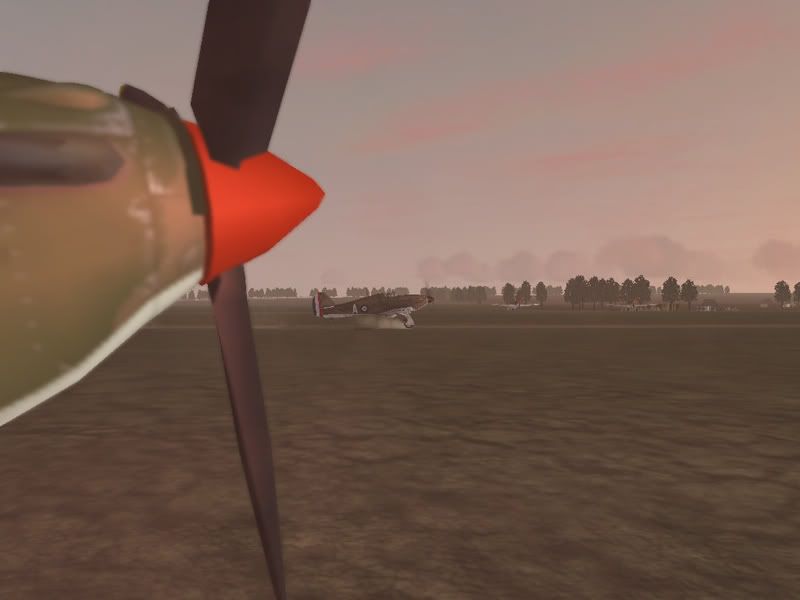
The best way to train, is to fly as much as possible, so for the next morning I scheduled a tour over the French countryside. As I briefed my young pilots, I stressed to them that they had to be careful. Those Jerry pilots already had a lot of experience in Poland, so we should not let ourselves suckered into a fight we could not win. If we kept radio discipline and good formation we could easily beat the German fighters, but we had to be careful for the Hun from the sun.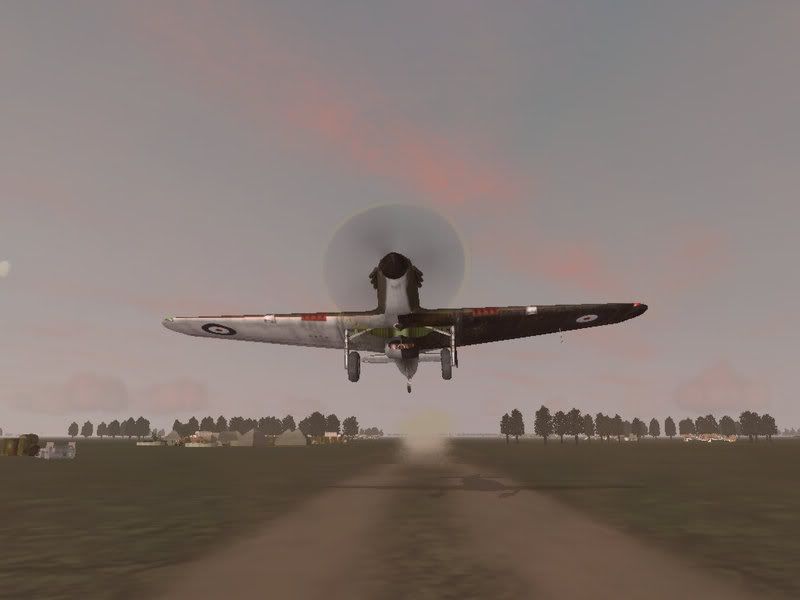
One by one we take off from the airfield, which consists of only one long dirt road acting as runway. I wiggled the wings of my Hurricane and let the squadron away. I had not told anybody that my only flying experience in the Hurricane was the flight from England to here. I had followed some dogfighting lessons when I joined the RAF but those were all in old bi-planes. I prayed that I would be able to lead my men in combat and survive.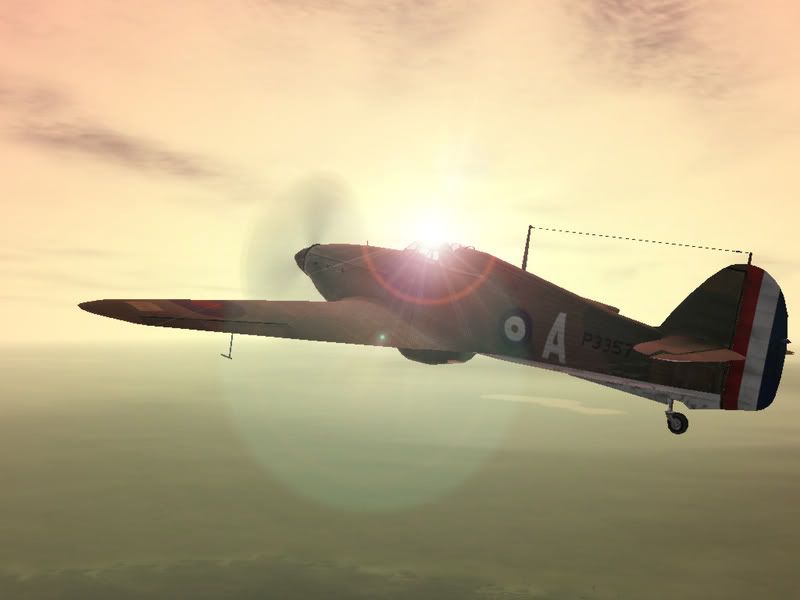
We form up in the morning sky. France can sure look nice from high up in the sky. There is another flight from a nearby squadron in front of us. Just like us they are on a familiarization flight around the battlefield.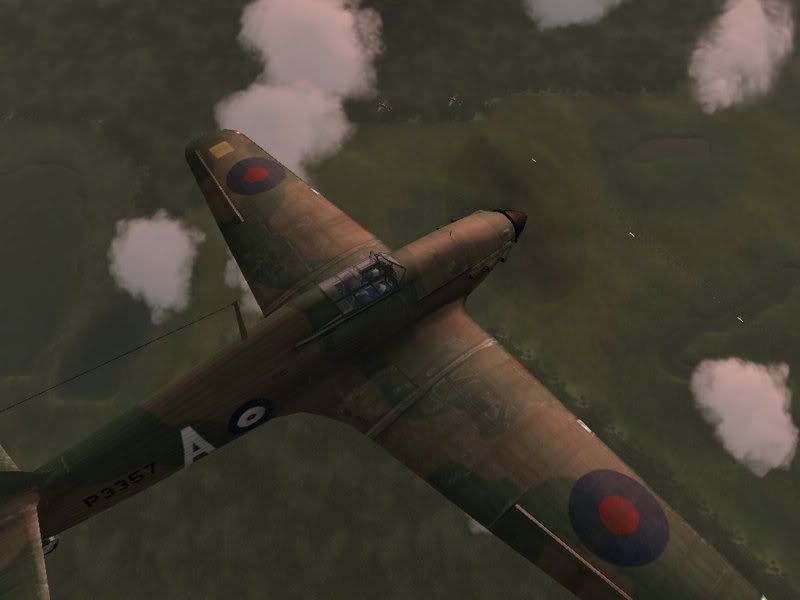
“Jerry bombers !!!”
The other flight break the radio silence alerting everybody of two German bombers. I presume they are scouts for future bombers because there are no enemy fighters so be seen. The other flight dives straight after the bombers. But i bank around. I want to be sure there are no Jerry fighters nearby and I want to position our flight for a quick dive towards the target.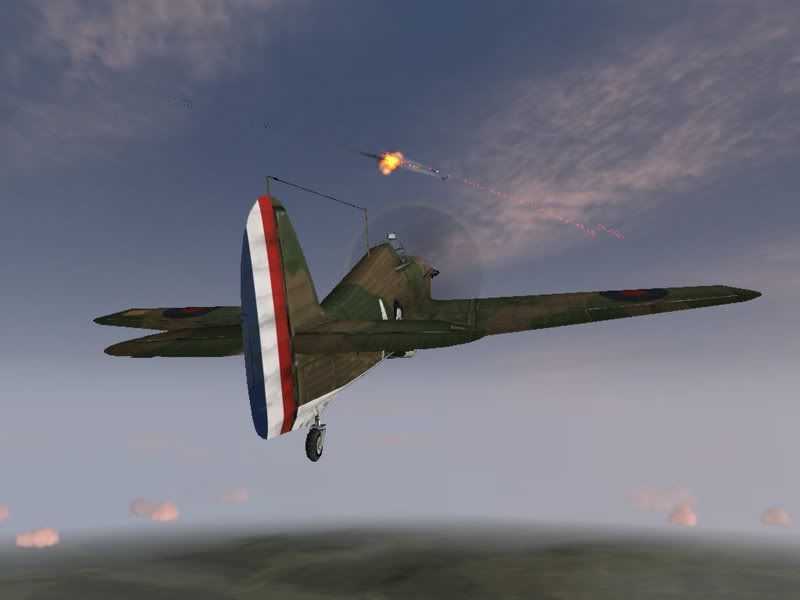
A sudden explosion in the sky and frantic voices over the radio, alert me that the other flight is in deep trouble. The bombers are not entirely defenseless. Equipped with rear firing machine guns they do their best to fend of their pursuers. Apparently one of the other flights aircraft got into the crossfire. The poor bastard did not stand a chance. His Hurricane exploded in mid air.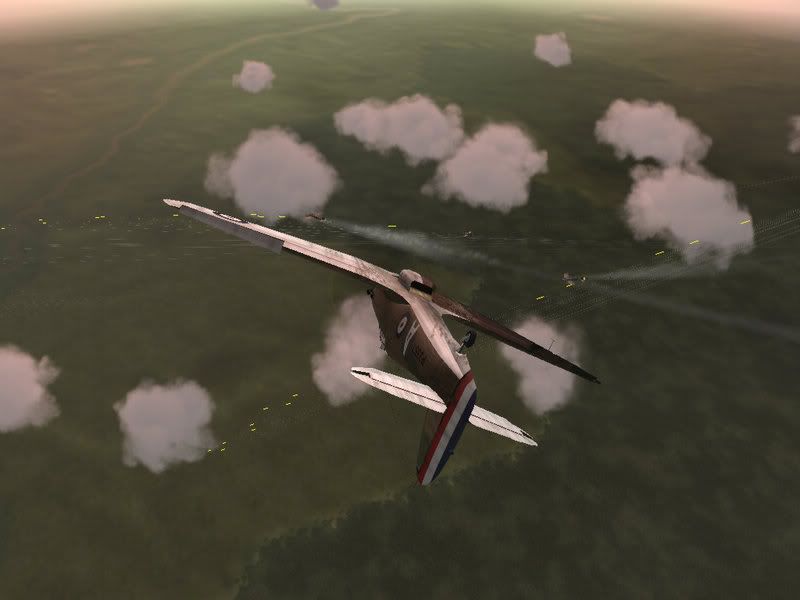
I won't make the mistake of flying behind the enemy bombers. This would bring the fluight in a perfect shot for the German rear-gunners. Instead i make a swooping pass, guns blazing.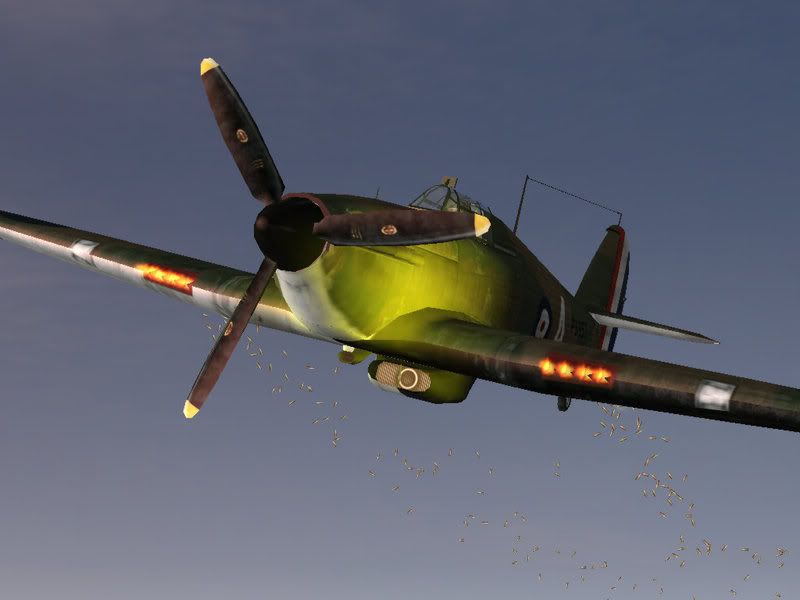
But as I pull out of the dive, still guns blazing, my engine stutters. Before i can react, the propeller comes to a grind halt and the engine withers away. I quickly check my fuel, glance over my shoulder, no smoke to be seen. I haven't been hit so what happened ... then it dawns on me. The pilot who handed me the hurricane had warned me of steeply pulling up. The Hurricane's engine has no fuel injection so during severe maneouvers you could starve the engine of fuel.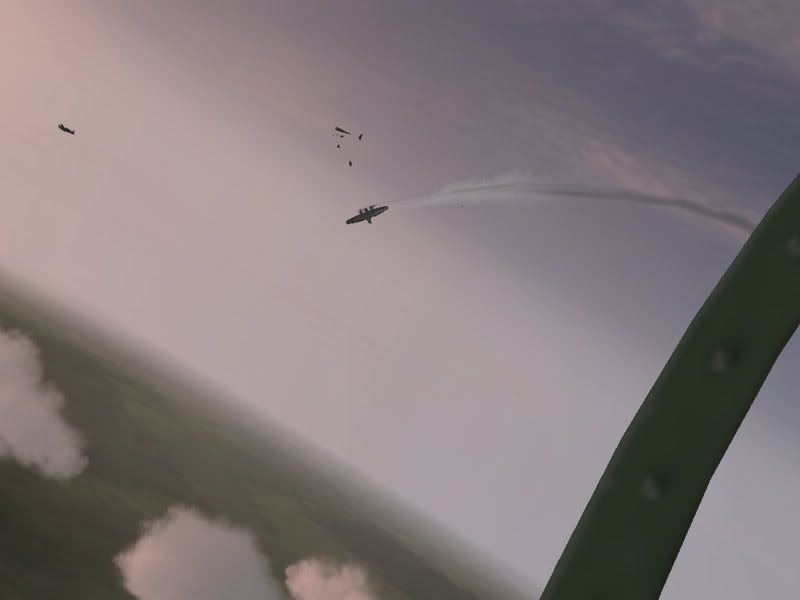
As I struggled to restart the engine, the other flight avenged their fallen comrade by shooting both bombers out of the sky. Only after several trials, the hurricane's engine started spinning again. With the bombers shot out of the sky, we could only head for home.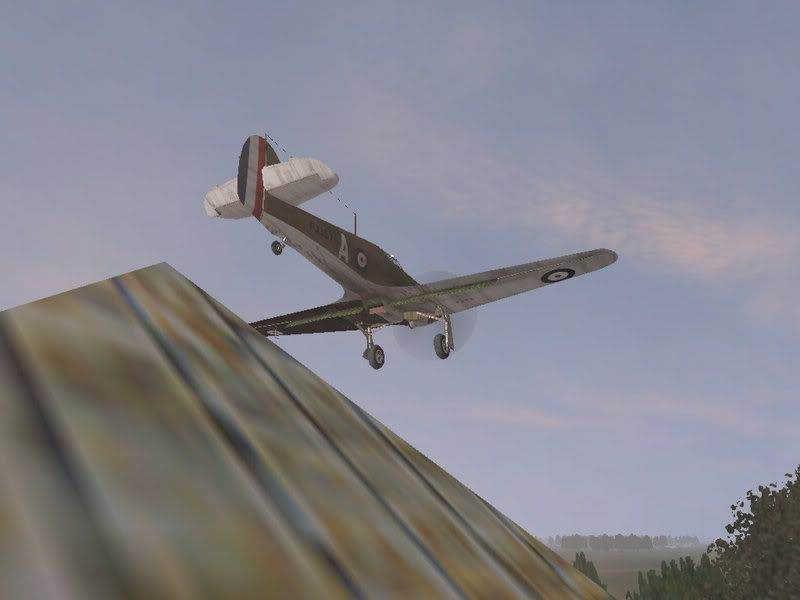
Landing at the airfield was not without risk. The runway, a glorified field track, lead to a farm which doubled as our headquarters. But if the wind blew from the wrong direction, we had pass over the headquarters, missing the roof by inches.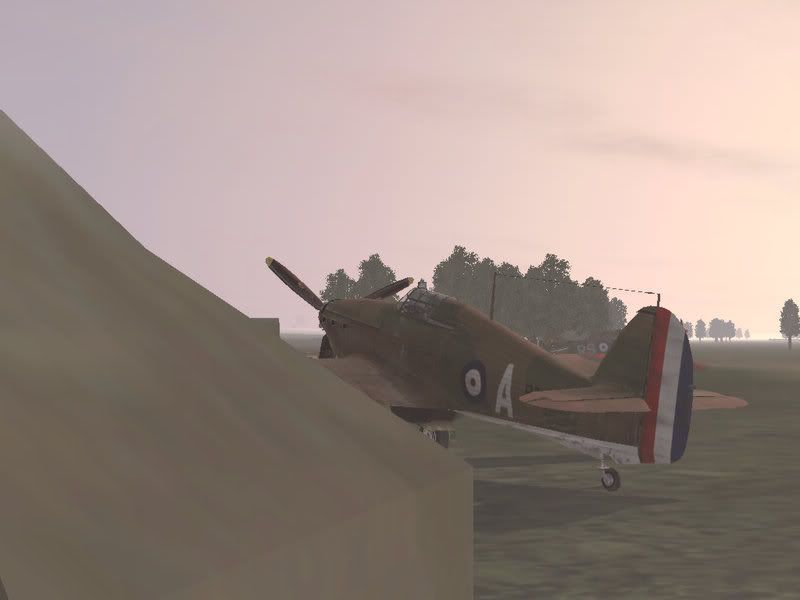
Parking my aircraft next to our tents, I sighted with relief. All of my pilots returned safe and sound and I had learned a valuable lesson in engine management. If we only could bag us some Germans on the next mission, then we could speak of a successful start of the war.

No comments:
Post a Comment